If you haven't driven for a long period, getting back in the driving seat can be a daunting prospect.
Here's how to return to the open road.
How to get back on the road: Short answer
When it comes to overcoming the fear of driving a car after a long period of not driving, there are a few key things to keep in mind.
First, it's important to remember that everyone takes a different amount of time to get used to driving again - don't be discouraged if it takes you a little longer than you expect.
Second, refresher driving courses can be extremely helpful in getting back up to speed.
Driving in your own car can be a great way to reinforce what you've learned in your lessons, and it also allows you to take breaks as needed.
Finally, always make sure to drive safely and responsibly - even if you're feeling a little rusty, safety should always be your top priority.
With these tips in mind, you'll be on your way to feeling comfortable behind the wheel again in no time!
Be sure to take precautions while driving, such as avoiding long trips until you feel comfortable behind the wheel.
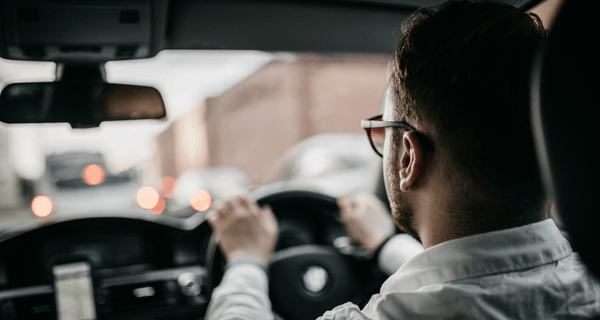
Why motorists stop driving
People stop driving for many reasons. Examples include illnesses, financial problems, easy access to public transport - and even motoring convictions.
Some people even pass their test but don't get around to buying their own car - having been put off by the cost, or even the fear of taking to the open road by themselves.
Others have stopped driving after a collision. Such an experience can really shake a driver's confidence - rooted in the fear that it could happen again.
Many drivers also stopped motoring during the Covid-19 pandemic.
Compare the Market survey
Comparison site Compare the Market carried out a study in 2016 asking motorists why they had taken a break from driving.
Here are the results:
- 37%: cost of driving too high
- 25%: lacked the confidence to drive again
- 20%: hadn't considered the costs of driving before their test
- 9%: felt pressured to pass the test at a young age
The last statistic makes sense, since a 17-year old is unlikely to be able to buy, insure and run a car - especially after spending hundreds or even thousands on lessons.
How long does it take to get used to driving again?
How long it takes to get used to driving again depends on many things: how long it’s been is a key one; driving again after 10 years will be more of a challenge than a 6-month hiatus.
General confidence levels are also key; as are any physical problems that need to be overcome (eg, following an operation or accident).
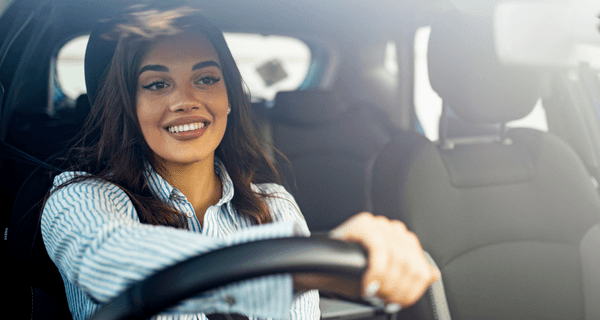
Refresher driving lessons in my own car
Can you get refresher driving lessons?
Yes!
There’s certainly no shame in taking driving lessons after passing your test - especially if you’ve been off the road for some time.
Driving refresher lessons do what they sound like: they refresh your understanding of the rules of the road and re-establish the motor skills needed to manoeuvre a vehicle safely.
Your instructor will point out any areas that need work, and help you decide if a single refresher course is enough (with luck, it should be).
Driving refresher courses are normally booked in 5, 10 or 15-hour blocks. Choose the option that feels right for you, based on your confidence level and/or how long it has been since you last drove.
Pass Plus
Having completed a driving refresher course, if you feel your driving skills still aren't as sharp as they could be, the Pass Plus advanced driving course is an option.
Pass Plus gives you experience in virtually all driving conditions, so it could really give your confidence a boost.
A DVSA-approved instructor will look at your competence by taking you through various modules, before signing you a Certificate of Completion.
The six Pass Plus modules are:
- Town driving
- Rural driving
- All-weather driving
- Driving at night
- Driving on dual carriageways
- Driving on motorways
Ask a friend or relative
A free alternative to a refresher course is asking a friend or relative to take you out on the road again.
However, they may not be as familiar with the Highway Code as a professional instructor - nor may they have their patience and teaching ability.
Getting back on the road by yourself
It's important to note not everyone needs a refresher course - particularly if you've only been off the road for a year or two.
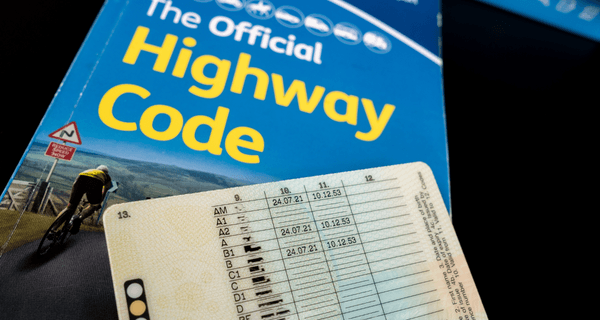 Credit: Ascannio - stock.adobe.com
Credit: Ascannio - stock.adobe.com
Research Highway Code updates
The Highway Code is changing all the time, so if you've been off the road for a year or two, chances are it has been updated.
Do a quick online search for Highway Code changes.
For example, recent updates include clarification regarding giving way to pedestrians crossing at junctions, and updates to the hierarchy of road users (with the most vulnerable at the top).
Underlining the importance of theoretical knowledge, once you pass the theory test, you must take the practical within two years.
If you don’t, you'll need to retake the theory - that's how quickly the rules of the road change.
There is a wealth of online and mobile resources designed to help you relearn key rules, become familiar with new ones, go over road signs, and develop your hazard awareness.
Getting reacquainted with your vehicle
Assuming you're driving the same car as before, take a little time to get used to the controls again.
You don’t want to be fumbling around for critical controls while out on the open road.
Pay attention to the controls for the headlights, indicators, hazard warning lights, wipers, screenwash, gears (including reverse!), and bonnet and fuel cap levers.
And as always, adjust your seat and mirrors as needed.
Muscle memory
Humans are blessed with "muscle memory" - when the mind and body remembers how to perform a specific task it has done many times.
However, while you're unlikely to forget the basics of driving, muscle memory can fade. This can be more of an issue as we age.
The situation can be more confusing if you have to drive a different model to the one you learned in or used to drive.
The first few months after you pass your test are also crucial for building long-lasting understanding and observation skills, so if your driving career was cut short early, you may find driving again especially challenging.
For example, many people who passed their test just before Covid struck found themselves unable to drive for many months.
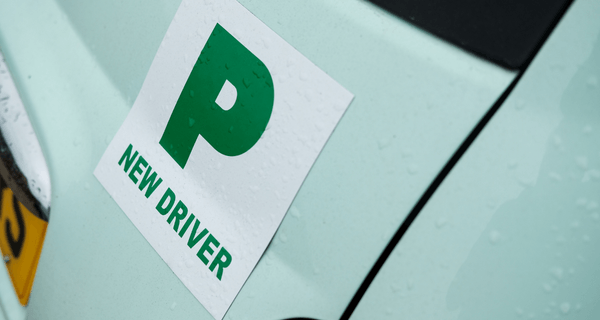
The first drive
First of all, it’s a good idea to fix P-plates to your vehicle.
This ensures other road users know you may not be 100% confident behind the wheel and should discourage them from getting too close.
It should also reduce the chances of being honked at - which is rarely something that enhances anyone's driving ability!
If you're especially nervous before your first journey, ask someone to accompany you as a passenger.
Be sure it’s someone who makes you feel calm!
Avoid unnecessary distractions
That said, avoid any unnecessary distractions.
Ask any passenger that accompanies you not to talk, and avoid playing music (changing tracks mid-drive will only make things more challenging, and may even make you a hazard to other road users).
And of course, never answer your mobile phone while behind the wheel - or interact with it in any way.
If you use your mobile for route planning (e.g. Google Maps), or your satnav, make sure it is programmed and ready to go before you begin driving.
Practise before setting off
You might decide to carry out some practice manoeuvres in a quiet car park.
In particular, re-familiarise yourself with clutch control.
Don't merge with real-live traffic until you are completely relaxed with the basic controls; this isn't the kind of thing you should rush.
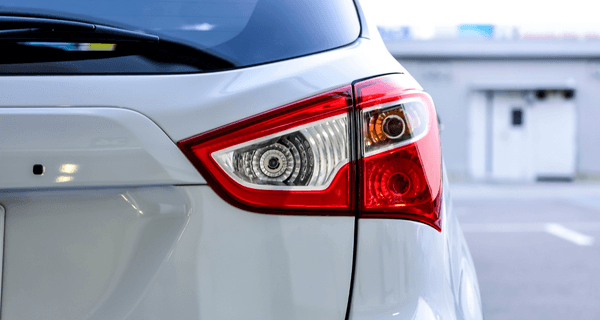
Encountering other traffic
As you move on to the public highway, consciously check and re-check your mirrors - just as you did during your test.
Double check oncoming traffic at junctions; even if you get the odd honk from fellow drivers,
it's better to be cautious than to get involved in an accident.
Build confidence
Avoid taking long trips; aim for shorter trips at regular intervals.
Stay on quieter, familiar roads to begin with, then venture into more congested areas. Keep your speed down.
As your confidence improves, you'll feel ready to tackle roundabouts and motorways again.
A large part of getting back behind the wheel is psychological: you need to gently build your assertiveness - which is why avoiding stressful driving environments initially is key.
Be ready for heavier traffic
As you get back on the road and start entering busier areas, you may notice traffic is heavier than before - especially if your driving hiatus began before or during the Covid lockdowns.





